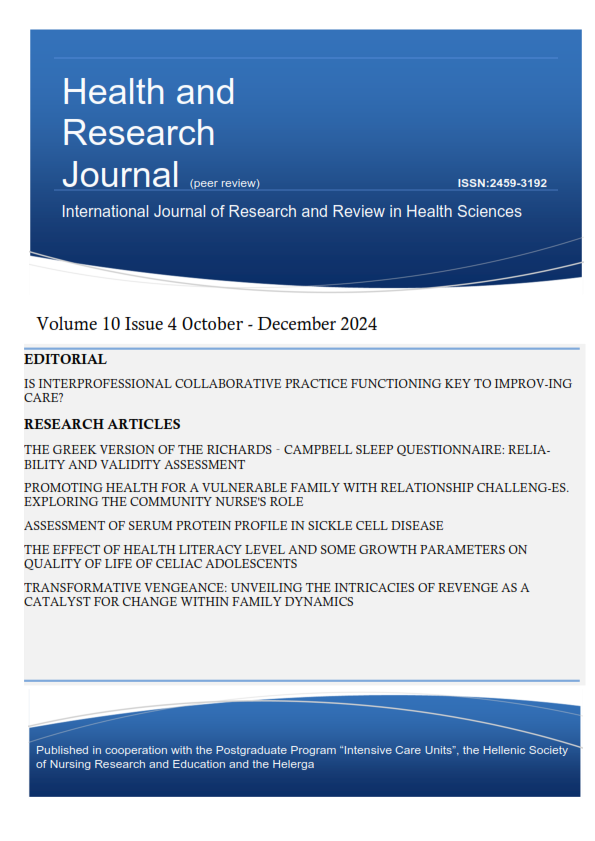The Effect of Health Literacy Level and Some Growth Parameters on Quality of Life of Celiac Adolescents

Abstract
Background: Celiac is an autoimmune disease that occurs as hypersensitivity to gluten and affects the intestinal system. This disease also negatively affects the quality of life of individuals. This study, it was aimed to investigate the effect of health literacy level and Body Mass Index (BMI) on the quality of life of adolescents with celiac disease.
Method and Material: All participants between the ages of 15-18 in the study completed the Turkish Health Literacy Scale (THLS-32) and Celiac Disease-Specific Pediatric Quality of Life (CDPQOL) Scale online. The data of this study was analyzed with the IBM SPSS Statistics 23 software package program.
Results: More than half (59%) of adolescents with an average age of 16.44 ±1.17 years had celiac disease for 3 years or more. CDPQOL mean total score was 41.44±14.33, and 44.4% of the participants had inadequate or problematic levels of health literacy. It was determined that the mean of total score of quality of life was not related to THLS-32 sub-dimensions but had a moderate negative relationship with diagnostic time and BMI (r=-0.376, p=0.005; r=-0.602, p=0.00, respectively). At the same time, it was found that the decrease in BMI was a predictive factor for poor quality of life (B=-0.218, p=0.003).
Conclusions: It has been shown that the health literacy levels of celiac adolescents are not related to the quality of life, and it is recommended to examine the quality of life with other variables that can be affected by many factors.
Article Details
- How to Cite
-
Bakirlioğlu, B., & Çetinkaya, B. (2024). The Effect of Health Literacy Level and Some Growth Parameters on Quality of Life of Celiac Adolescents. Health & Research Journal, 10(4), 255–264. https://doi.org/10.12681/healthresj.35428
- Section
- Original Articles
Copyright notice:
Authors retain copyright of their work and grant the Health and Research Journal the right of first publication.
License:
Articles are published under the Creative Commons Attribution 4.0 International License (CC BY 4.0). This license permits use, sharing, adaptation, distribution, and reproduction in any medium or format, including for commercial purposes, provided that appropriate credit is given to the author(s) and the original publication in this journal, a link to the license is provided, and any changes are indicated.
Attribution requirement:
Any reuse must include the article citation and DOI (where available), and indicate if changes were made.


